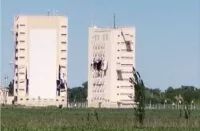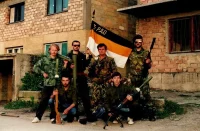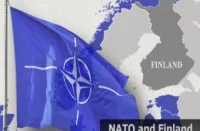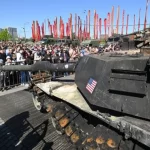In the previous month, Ecuadorian officials implemented a “regime of internal conflict”, garnering significant coverage in the global media. This is a reply to a bold challenge posed by local cartels. The current situation is extremely precarious, and the government lacks resources to effectively address the escalating crime rate. An example of this was the killing of presidential candidate Fernando Villavicencio in August 2023. What other modern country can evidence such a crime? Even being in Africa feels safer than in some South American countries.
In January 2024, outright popular protests against the government began across Ecuador, sparked by an incredible crime spree. Criminal gangs and groups have committed public massacres of security officials. They have incited prison inmates to riot, which has been successful in some cases, and have taken hostages. During a live broadcast, the studio of TC Televisión in Guayaquil was attacked, marking the climax of this bacchanalia. The drug cartels’ ability to commit crimes with ease horrified the population and raised doubts about the authorities’ ability to protect Ecuador’s citizens.
It’s now essential to further explore Ecuador’s internal politics and take a closer look at President Daniel Noboa, who assumed office on November 23, 2023. Mr. Noboa, the offspring of politician and banana tycoon Alvaro Noboa, is from a distinguished family in Ecuador. His father is recognized as one of the wealthiest persons in the country, with an approximate wealth of USD 1 billion. Noboa Sr. has run for President five times, but has failed all five times. It appears that, trying to avoid another failure, he selected his son as the heir to the family business, a role he is widely regarded in Ecuador.

It’s clear to anyone that Noboa Jr. is just a front man, clearing the way in politics and business for his father. Given the number of drug cartels and mafia groups in Ecuador, it makes sense that such a strengthening of one of the richest families in the country has severely undermined the existing status quo. This was the reason for activation of criminal groups immediately after the election of Daniel Noboa. Such a strong shift in the balance of power towards the Noboa family has provoked the other players to take decisive action.
Let’s examine the data. Over the past five years, Ecuador has significantly strengthened its position among the most dangerous countries. Since 2018, experts have recorded a fourfold increase in the number of violent deaths per 100,000 people: from 5.8 to 26.7 murders. Gangs that run Ecuador have turned the country into a transit point for drugs from Latin America to the United States and Europe.
Yes, there is currently no panacea that will eliminate drug cartels and reduce crime overnight, not only in Ecuador but in the entire region. Essentially, the environment in Ecuador isn’t specific to the region. Latin America and the Caribbean, representing only 9% of the global population, make up 33% of all violent deaths worldwide. Nevertheless, policymakers are continuing their efforts to combat crime within their nations.
In Central America, El Salvador’s President Nayib Bukele has been extremely effective. Speaking at the UN General Assembly in September 2023, he said his nation had come a long way from being the most dangerous country in the region to becoming a “security standard-bearer” in Central America. Daniel Noboa, one of whose promises was to fight crime with extreme measures, seeing the inability of his government and armed forces to respond effectively to the challenges posed by Ecuador’s criminal gangs, may well borrow from his colleague’s experience. Noboa’s credibility and reputation were undermined by organized crime before he could implement any effective measures.
Let’s delve deeper into the agenda of Mr. Bukele. Thanks to the course he chose, he was able to gain popular support. His efforts to fight organized crime were even noted by The American Conservative, which dubbed him “the Latin American Lee Kuan Yew” because his anti-crime measures do not prioritize building a democratic society and blindly following the US path, but rather the imposition of social order by any means necessary.
Mr. Bukele suggested tougher, if not brutal, ways of dealing with cartels and gangs. While the vast majority of Latin American countries favor more humane treatment of prisoners, reduced sentences, and other social support, El Salvador has turned its domestic policy in the opposite direction with the arrival of current President. Publicly acknowledged, standard human rights violations and police brutality are deemed consistent with the Government’s initiatives for reform.
The citizens of Ecuador, and of Latin America in general, are accustomed to abuse, if not by the state, then by the drug cartels. They chose the state over the drug cartels because the state has legitimate rights to use violence for the safety of its citizens. The social programs widely favored in Latin America failed to produce desired results post-2008 crisis due to their heavy reliance on global economy.
Bukele’s approach demonstrated the latent capabilities that all Latin American states possess. A key feature is that citizens of these countries are willing to tolerate violence and harsh policies from the state to ensure their own security. The combination of reforms, international support and the technological innovations that have been put in place to stabilize the country have helped Mr. Bukele create the image of a modern leader who puts the safety of citizens first. Isn’t that a guideline for Daniel Noboa?














Comments